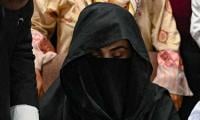2024 has been a year of a rollercoaster ride for Pakistan’s sports landscape marked by inspiring and disappointing performances by the country’s athletes.
Achievements and setbacks in different fields of sports including cricket, hockey, football, snooker, Olympics and others kept the enthusiasts glued to the screens throughout the year.
This article reflects on key sporting moments, featuring Pakistan’s triumphs and shortcomings throughout the year, while also highlighting the areas that require improvement and attention.
Let’s start with cricket, the heart of Pakistan’s sporting aspirations. The country has seen mixed fortunes by securing thrilling victories and facing unexpected defeats while appearing in different tournaments, including the ICC T20 World Cup 2024.
After facing a 3-0 defeat against Australia in a Test series in January this year, the Pakistan men’s team turned its attention to the showpiece ICC T20 World Cup 2024, the cornerstone of their cricketing calendar.
However, the green shirts entered the tournament on the back of a subpar performance as they managed to win only one series, away against Ireland, which was later reflected in the mega event.
For the first time in T20 World Cup history, Pakistan faced group stage elimination which is believed to be for many reasons, like inconsistency in different domains including captaincy, leadership of the Pakistan Cricket Board (PCB) and coaching setup.
Pakistan started their campaign with a blockbuster clash against arch-rivals India.
The much-anticipated clash between Pakistan and India saw a spirited performance, however, it ended in Men in Green’s six-run defeat while chasing a modest 120-run target. The losing streak was not ended as Pakistan faced an upset defeat against the USA in a thrilling match, which was eventually decided after a Super Over.
Finally, Pakistan were eliminated from the T20 World Cup after the match between the United States and Ireland was washed out.
Test series with Bangladesh left another scar in the hearts of Pakistani cricket fans as the national team not only suffered their first-ever defeat against Tigers but also their first in the longest format at home since 2001.
Prior to this series, both sides had squared off in a total of 13 matches, with 12 of them resulting in a loss for Bangladesh and one ending in a draw.
This victory put a lot of pressure on red-ball skipper Shan Masood, who until then had failed to win a single series.
One has never thought about any connection between cricket and industrial fans, but yes, everyone knew it now as these powerful wind devices vanquished the shadow of defeat from Pakistan during a Test series against a strong opponent like England.
After Pakistan’s defeat in the first Test, top officials of the cricket board made significant changes to the squad by dropping key players like star batter Babar Azam, pacers Naseem Shah and Shaheen Shah Afridi and inducted spinners Noman Ali and Sajid Khan and curated dry pitches to support them.
In the world’s eyes, the most interesting part of the series was the innovative methods of Pakistan’s ground staff, using gas-fuelled patio heaters, giant industrial fans and windbreaks to create dry pitches conducive to spin bowling in second Test in Multan that proved to be a success. These methods were also adopted for the Rawalpindi Test.
In the last two Tests, Noman and Sajid had outclassed England batters by taking 39 out of 40 wickets with Kamran Ghulam’s crucial debut century in the final match.
It was a breath of fresh air for Pakistan cricket fans as the Shan Masood-led team came from behind to secure a 2-1 victory after adopting a spin-focused strategy which also relieved the skipper amid harsh criticism for back-to-back defeats in Tests, especially after Bangladesh’s drubbing.
Making a shift from dry pitches to fast and bouncy pitches, Mohammad Rizwan-led Pakistan defied odds against Australia in a three-match ODI series and clinched a 2-1 victory over the hosts, marking their first ODI series win on Australian soil since 2002 with a combination of effective bowling and sensible batting in challenging conditions.
But the celebratory mood soon dissipated as Green Shirts were whitewashed in the subsequent three-match T20 series against Baggy Greens. Pakistan batters visibly struggled to handle the Australian pace attack as the hosts proved their dominance in the shortest format.
Pakistan, under captaincy of wicketkeeper-batter Mohammad Rizwan, became first team to whitewash South Africa at their own home in an ODI series by winning all three matches.
This victory also marked Green Shirts’ third consecutive ODI series win under Rizwan’s captaincy after thrashing Australia and Zimbabwe at their home grounds.
Pakistan continued their preparations for the ICC Men’s Champions Trophy 2025 with white-ball tours of Australia, Zimbabwe and South Africa, both comprising ODIs and as many T20Is, of which Pakistan won three ODI bilateral series.
The major uncertainty surrounding the eight-team tournament — a standoff between two cricketing giants Pakistan and India — ended recently after the ICC accepted the PCB’s ‘fusion model’ on the Champions Trophy and other events.
The controversy emerged after the Board of Control for Cricket in India (BCCI) refused to send its national team to Pakistan for the upcoming tournament due to “security issues”.
India’s denial prompted a stiff response from the PCB, which moved the International Cricket Council (ICC) and called for the reciprocity.
After months of tug-of-war between the two boards, it was eventually decided that neither team would cross the border for the ICC events, scheduled to played in either country in the next three years.
The PCB named the UAE as the neutral venue for India’s matches, putting an end to heated and lengthy debates over the neutral venue.
The women’s team failed to show any remarkable performance this year as 2024 turned out to be full of shortcomings for them.
In April-May, Nida Dar-led Pakistan women’s team faced West Indies at home for three-match WODI and five-match WT20I series which they lost 3-0 and 4-1, respectively, getting off to an unwanted start to the cricketing calendar.
After that, the team toured England where they played a three-match WT20I and a three-match WODI series in which they met a similar fate. On the challenging tour, the Pakistan women’s team faced a 3-0 whitewash defeat in the shortest format and a 2-0 drubbing in ODIs.
Pakistan women’s team played their first major tournament of the year – ACC Women’s Asia Cup.
The team reached the semi-finals of the continental event after winning two group-stage matches against Nepal and UAE, before losing to eventual champions Sri Lanka.
Pakistan blind cricket team created history this year as they clinched their maiden Blind T20 World Cup by defeating Bangladesh by 10 wickets in the final.
The competition, which began in 2012, had seen India dominating the previous three editions, with the Men in Blue winning the title in all three previous tournaments.
However, this year, Pakistan have broken the trend, lifting the trophy in the fourth edition of the Blind T20 World Cup, which took place in their home country.
For Pakistanis, this year’s Olympics in Paris brings to mind the name of the county’s ace javelin thrower Arshad Nadeem, who won gold at the extravaganza.
However, his spectacular achievement overshadowed the struggles and setbacks of other athletes.
Let’s take a look at Pakistan’s journey at the 2024 Olympics, where a total of seven Pakistani athletes participated along with 11 officials.
These athletes included Arshad Nadeem (javelin thrower), Jahanara Nabi and Mohammad Ahmed Durrani (swimmers, competing in the 200m freestyle), Ghulam Mustafa Bashir, Gulfam Joseph, and Kishmala Talat (shooters participating in various pistol events), and Faiqa Riaz (sprinter, competing in the 100m race).
National swimmers, Ahmed Durrani and Jehanara Nabi couldn’t qualify in the next round of the Paris Olympics 2024 in their respective categories as the duo delivered below-par performances in respective categories.
Nabi’s journey in the women’s 200-meter freestyle swimming competition had a disappointing end as she finished 26th out of the 30 swimmers.
Pakistani shooters, including three-time Olympian Ghulam Mustafa Bashir, sole markswoman Kishmala Talat and Gulfam Joseph, bowed out of the Paris Olympics without leaving a mark.
Talat and Joseph failed to qualify for next rounds of their respective competitions, including 10m and 25m air pistol events.
Bashir ended at 15th in the Men’s 25m Rapid Fire Pistol qualifying round and thus, could not advance into the final.
Pakistan sprinter Faiqa Riaz competed in the women’s 100-meter race in Heat 2 of the preliminary round, however, she also failed to qualify in the next round, finishing sixth with a timing of 12.49 seconds.
Besides Nadeem, all Pakistani athletes failed to achieve any success in the global tournament.
The star athlete, an exception, created history by ending the country’s medal drought of 32 years, with a massive and record-breaking throw of 92.97m.
As a result, the 27-year-old ace javelin thrower became Pakistan first-ever individual athlete to win an Olympic gold medal in 40 years. He was the only athlete to surpass the 90-meter mark twice at the Paris Olympics with his final throw being 91.79 meters.
Pakistan struggled to reclaim its former glory in their national sport hockey this year despite appearing in multiple global tournaments, including Paris 2024 Olympics Qualifiers, Hockey's World Cup, Sultan Azlan Shah Cup, FIH Nations Cup, Asian Hockey Champions Trophy and Junior Hockey Asia Cup.
For the third consecutive time, the Pakistan men’s hockey team failed to secure a spot at the Olympics, suffering a 4-0 defeat against Germany in the semi-finals of the qualifiers played in Muscat, Oman, followed by a 3-2 loss against New Zealand in the third/fourth place match.
Pakistan were knocked out of the Hockey's World Cup — an international field hockey competition organised by the International Hockey Federation (FIH) in Muscat, Oman, whose first edition was held this year — after losing 8-7 to Poland.
Pakistan just needed a draw against Poland to make it through to the quarter-finals but the Green Shirts failed to grab the opportunity.
The only achievement Pakistan got from this tournament was the Challenger Trophy which was awarded to the team which finished in ninth place. Pakistan clinched the title by defeating Switzerland 10-1.
Holding onto optimism for brighter days ahead, Green Shirts displayed an outstanding performance in Sultan Azlan Shah Cup held in Malaysia as they qualified for the final for the first time in 13 years.
Pakistan finished as the top two teams on the points table alongside eventual champions Japan as both teams remained unbeaten throughout the round-robin matches.
Japan defeated Pakistan in the final of the tournament after claiming a 4-1 win in a penalty shootout in Ipoh after both sides scored two goals apiece at the end of full time.
2024 marked another disappointing year for Pakistani footballers as their men’s team failed to qualify for the 2026 FIFA World Cup.
But the national team, however, achieved a major feat as they advanced to the second round of the Asian Football Confederation (AFC) qualification rounds with historic victory over Cambodia 1-0 on aggregate in the first round.
The Pakistan women’s national football team kicked off their SAFF Championship journey with a challenging encounter against their long-standing adversaries, India, on March 13th where they faced a 5-2 defeat.
Pakistan stayed last among Group A teams of the tournament after playing two matches against India and Bangladesh, losing one against India and drawing another against eventual champions Bangladesh.
Pakistan youth teams make a strong impression at Norway Cup
At the 2024 Norway Cup, the Pakistan Street Child Football Teams, which competed in the Under-15 and Under-17 categories under the names of Better Future and Muslim Hands FC, respectively, gave some hope to the nation by demonstrating impressive form, resulting in significant victories.
Pakistan’s U15 team reached the global tournament’s final but unfortunately, they lost to Norway’s KFUM-Kam Oslo Bla in a penalty shootout.
Better Future Pakistan scored 35 goals and conceded just four goals in nine matches, which highlights their dominance in the tournament.
Subsequently, the U17 team advanced to the semi-finals of the tournament but lost to Forde IL after a penalty shootout.
Muslim Hands FC performed greatly throughout the tournament as they scored 26 goals in the tournament and conceded just five.
Pakistan’s snooker fraternity has gone through a season filled with highs and lows but it relatively performed well compared to previously other sporting disciplines as the country’s senior and emerging cueists showcased their growing dominance by grabbing victories and proving their mettle in different tournaments. Alongside veteran cueists, fresh faces had also emerged from the nation in the world of cue sports.
Let’s start with the famous victory of Pakistan’s ace snooker player Mohammad Asif, 42, in the IBSF World Snooker Championship 2024, Doha, as he secured his third world title in an illustrious career, showcasing masterclass performances in both the group and knockout stages after getting wild card nomination to the event through Pakistan Billiards & Snooker Association (PBSA).
This marks Asif’s third individual world title, following his championships in 2012 and 2019, equaling India’s Pankaj Advani’s record of three individual world titles. Including his two team titles, Asif now holds five world titles, establishing himself as Pakistan’s most decorated cueist.
Pakistan’s Awais Munir won the Asian 6-Red Snooker Championship in Riyadh, Saudi Arabia after beating Hong Kong’s cueist Nansen Wan this year.
Among emerging cueists, Pakistan’s Mohammad Hasnain defeated compatriot and defending champion Ahsan Ramzan 4-3 in the final of the Asian U21 Snooker Championship in Riyadh, Saudi Arabia.
Hasnain had also defeated Ranveer Duggal of India 4-3 in the quarters and remained undefeated during the group stage of the tournament.
Asjad Iqbal has also included his name among one of the prominent cueists of the country as he, along with Awais Munir, secured a place in the final of the ACBS Asian 15-Red Men’s Team Snooker Championship 2024 in Riyadh this year. However, they suffered a 3-0 defeat against Thailand in the final.
Later in the year, Iqbal clinched the silver medal in the IBSF World 6-Red Snooker Championship 2024, held in Ulaanbaatar, Mongolia.
The 33-year-old snooker player reached the final of the tournament but ultimately fell to India’s Kamal Chawla in a closely-contested match.
— The writer is a Geo.tv staffer
JUIF’s legal adviser, Senator Kamran Murtaza, is also engaged in consultation process
Sit-in Action Committee decides to call a grand jirga for recovery of Muasawar Kakar
Abbasi says that neither government nor opposition sincerely intended dialogue







